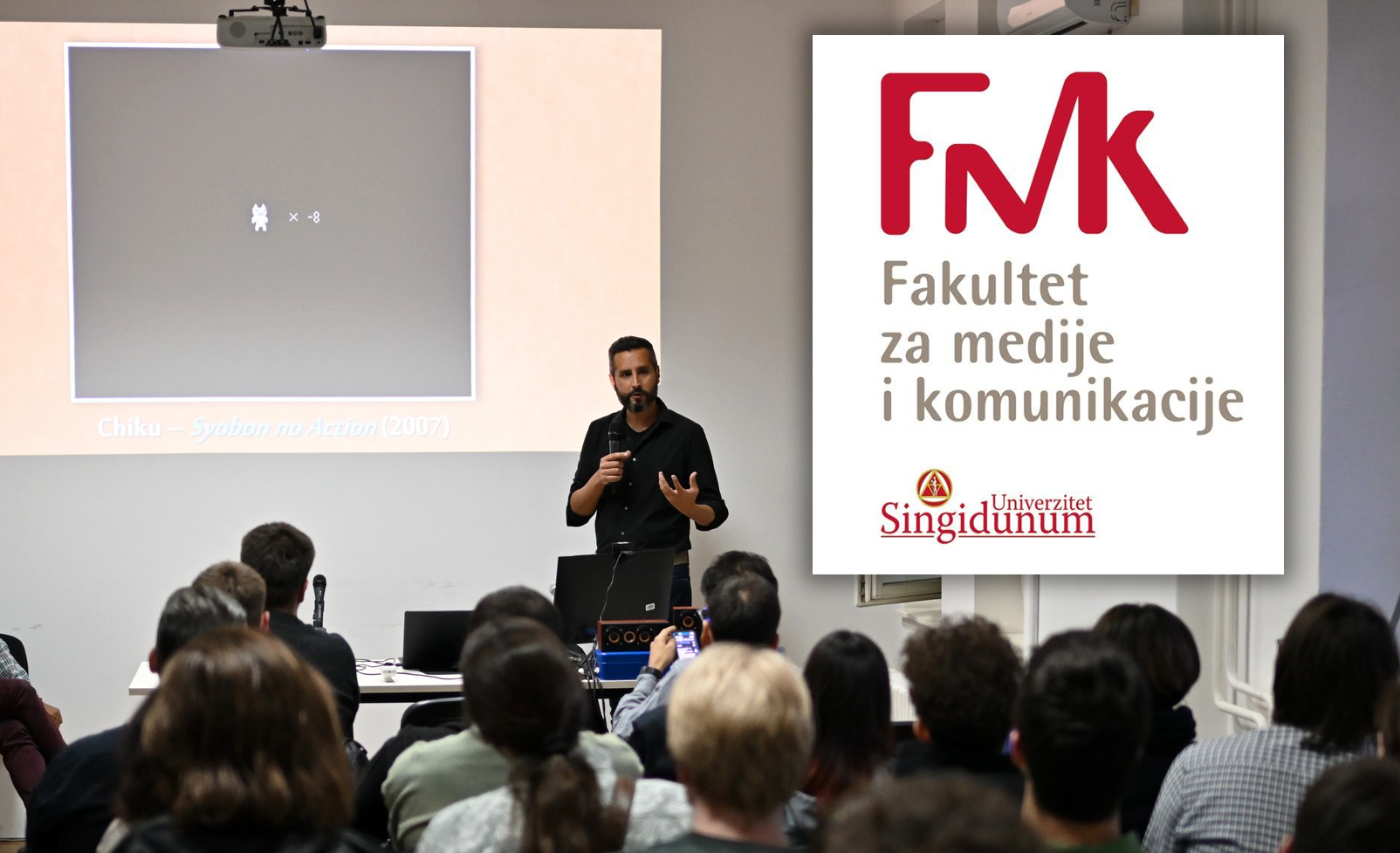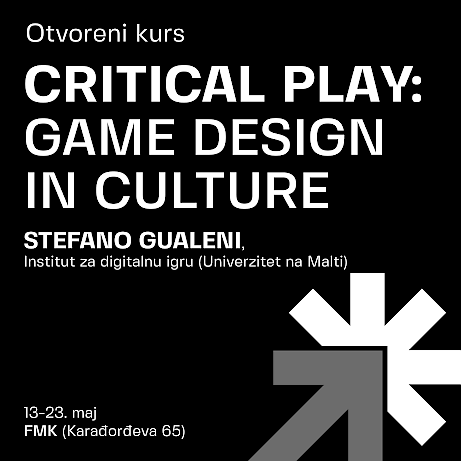
Critical Play: Game Design in Culture - A six-lecture open course by Stefano Gualeni at FMK Belgrade


Games have a dynamic relationship with society. They have the potential to change cultural norms and reshape individual attitudes and beliefs. Prof. Gualeni has been invited to teach ‘Critical Play: Game Design in Culture’ at the FMK University in Belgrade, Serbia 13th and the 23rd of May.

This interactive and interdisciplinary six-lecture course is open to FMK students as well as to the general public. It will empower students to become thoughtful creators and consumers of games and videogames, and to equip them with the analytical tools to understand the potential (as well as the drawbacks) of game design as an expressive form.
Exploring player experience
Drawing from fields such as game studies, media studies and the philosophy of fiction, students will be invited to critically examine games and their meanings, and to develop a nuanced understanding of how player experience both relies upon and transforms the world around us.
Students will ideally have a sharper, critical outlook on media and games, after completion of the course. And hopefully also be agents of change, equipped to shape the future through the transformative and persuasive effects of play.
The course is open to students and the public, so if you have an interest in game design and want to learn more and are in Belgrade between 13th and the 24th of May, you are very welcome to join at FMK (Karađorđeva 65)!
Philosophical use of games
What can you expect? Watch Stefano and Costantino’s recent lecture on the conceptual and philosophical use of games.
Digital Humanities Research Group
The Digital Humanities Research Group at the University of Malta tackles topics at the intersection of digital technologies and subjects in the humanities, such as philosophy and literature. This crossroads is the natural home of digital games, as they are – by their very nature – multidisciplinary, combining art, music, writing and design with cutting-edge digital technology, and engaging with philosophical, literary and aesthetic concepts in the language of computation.
More about Stefano Gualeni
Trained as an architect and a philosopher, Stefano studies virtual worlds in their role as mediators: as interactive, artificial contexts where ideas can be encountered, manipulated, and communicated experientially.
He also studies (and creates) virtual worlds and fictional worlds as tools to operate changes on ourselves and our society: as gateways to explore alternative possibilities for thinking and being.

